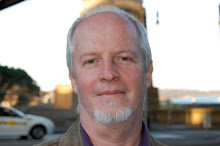
Brazilian billionaire Eike Batista, the world’s eighth richest person, at his home in Rio de Janeiro – along with the Mercedes-Benz SLR he keeps in the sitting room. Photograph: Eduardo Martino/Redux/Eyevine
Brazil's richest man: the possibilities for Rio's transformation are limitless
'I look at Rio's future, I see a mixture of California, New York and Houston,' says entrepreneur Eike Batista
* Tom Phillips in Rio de Janeiro
* guardian.co.uk, Sunday 26 December 2010 19.14 GMT
He extracted his first million from lawless goldmines deep in the Amazon jungle and went on to become Brazil's richest man, a smooth-talking mining and energy tycoon who keeps a Mercedes-Benz SLR in his sitting room as a symbol of his $27bn (£17bn) empire.
Now, with Rio de Janeiro gearing up for the 2014 World Cup and 2016 Olympics, Brazilian entrepreneur Eike Batista has set himself two new goals: to help transform his adoptive beachside home into one of the world's most dynamic and affluent cities, and to become the richest man on Earth.
"Mister Carlos Slim has to invent a new race kart to catch up," said the 53-year-old, referring to the Mexican telecoms billionaire rated by Forbes as the world's wealthiest person. Batista is currently eighth.
Batista's companies, controlled by a holding group called EBX – the X a reference to multiplying profit – plan to pump nearly £13bn into Rio state over the next two years, constructing ports and factories, and drilling for oil.
"If I look at Rio 10, 15 years out it is going to be unbelievable," he said, describing the city's future as a mix of California, New York and Houston, combining stunning beaches and natural beauty with financial clout and ultra-modern architecture.
He is also working on plans to build, from scratch, "a super-modern, digital city" for about 250,000 people. The city, to be erected around150 miles from the state capital and designed by the Brazilian architect and urban planner Jaime Lerner, will be called Cidade X.
The billionaire's Rio projects involve cleaning up the Rodrigo de Freitas lagoon, running a luxury cruise ship for tourists, revamping the city's marina and restoring a traditional hotel, which like much of Rio has fallen on hard times in recent decades as growing violence triggered a crippling economic exodus.
One of the patrons of Rio's successful Olympic bid – he gave about £9m to the campaign – Batista has also donated £38m to help fund a government "pacification" scheme which is attempting to rid the city of perhaps its greatest problem: the armed drug gangs which control many of Rio's 1,000 favelas.
"Most of [Brazil's wealthiest] people live 90% of their lives in Brazil … [but] they save money to buy something in New York, or in Miami or London or Paris," he said. "Their children sometimes have to drive in armoured cars. Let's change this. This is the paradise."
In Brazil, one of the most unequal countries in the world and a place where most billionaires prefer to hide in the shadows, Batista – widely known as just Eike – is a rare and extravagant exception. His name appears in gossip columns and financial papers with equal frequency.
"The only way to change things in Brazil is to open up your kimono and show what you have," he said during an interview at his beachfront office overlooking Sugarloaf Mountain. "I'm sorry. I think in a way Brazilians don't want to say they are rich because they don't want to help. I have a problem with that.
"We lived tough times, economically speaking … but you see much more generosity between lower-income Brazilians … than you see among the middle class and higher classes which, honestly, one could be ashamed of."
Batista began his rise to fame and fortune during the 1980s Amazon gold rush, rubbing shoulders with gunslingers and prostitutes in jungle "pleasure shops". "I sat there and drank a little bit of beer or whisky with them. But I didn't engage, if that was the question," he says with a grin. "It was unbelievable. Gold all over. Wild West."
The adventure paid off. By the age of 24 he had traded around £39m of gold and was left with 10%. "That was my first big experience."
Next he threw himself into projects in Russia, Chile and Canada. In 2003, with about £650m in the bank, he returned to Brazil and went into mining and oil.
Then last year his fortune ballooned by £12bn, largely thanks to OGX, the oil and gas exploration firm he founded in 2007 and took public the next year.
His rocket rise to super-wealth has coincided with big changes in Rio, with new security policies, a fledgling oil boom and the onset of the World Cup and Olympics sending rents and house prices through the roof and attracting a growing wave of foreign investment.
Violence persists but authorities say they are finally making progress in their war on crime. In June Rio registered the lowest number of homicides in nearly 20 years, according to the government.
"We are destined … to growth, development and prosperity," governor Sergio Cabral boasted at the recent launch of one of Batista's latest projects, a £700m "super-port" on the Rio coast. "Our self-esteem is through the roof, with the World Cup, the Olympics, an extraordinary series of investments coming up. Every day I meet with investors and businessmen who want to come to Rio de Janeiro."
Batista said: "I think what the governor is doing is surprising us,", attributing part of Rio's fledgling renaissance to government attempts to reclaim the slums from armed gangs. "As a citizen of Rio de Janeiro, it's wonderful because you can see the solution. It works. It is working. With the massive wealth creation … I can see this all being solved. It's doable."

